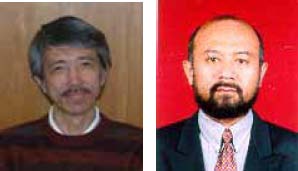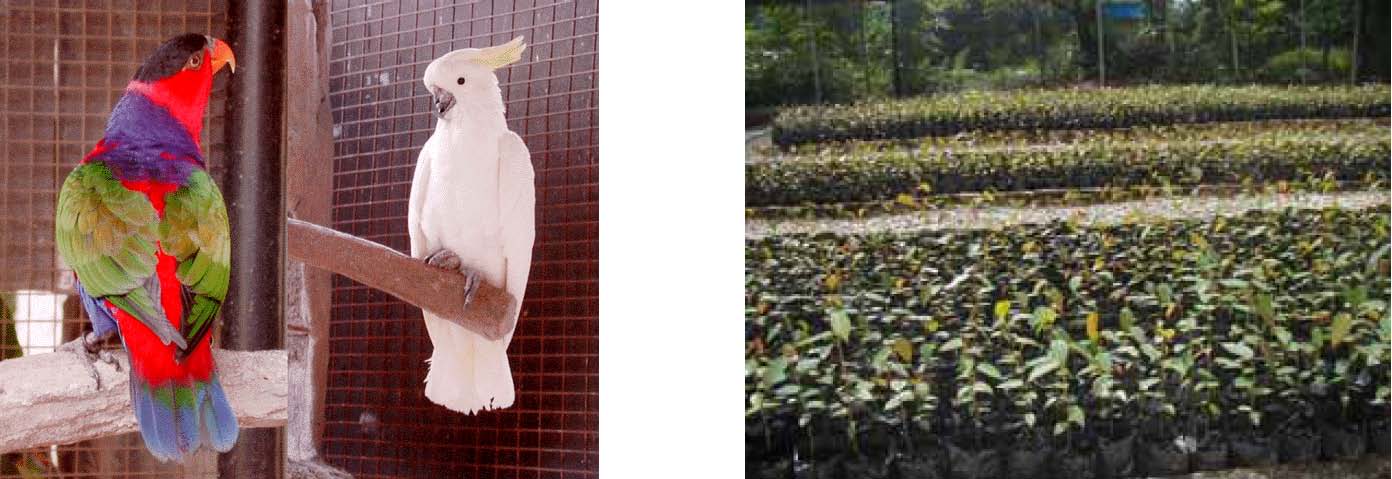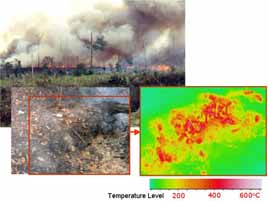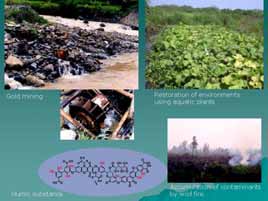|
|
|
(
別添1・英文)
THEME
Environmental conservation and land use management
of wetland ecosystem in Southeast Asia
[ Started from ] 1997

Foto: Dr. Motoyoshi Ikeda (HOKUDAI, JAPAN) & Dr. Dedy Darnaedi (LIPI, INDONESIA)
[ Organization ]
|
Japan |
Counter country |
|
| Japan Society for the Promotion of Science | Funding Agency | Indonesian institute of Sciences (LIPI) |
| Hokkaido University | Core University | Research Center for Biology, LIPI |
| Motoyoshi Ikeda, Dean, Fac. of Environ. Earth Science, Hokkaido University | Representative Director | Dedy Darnaedi, Head, Research Center for Biology, LIPI |
| Motoyoshi Ikeda, Dean, Fac. of Environ. Earth Science, Hokkaido University | Coordinator | Dedy Darnaedi, Head, Research Center for Biology, LIPI |
| Hokkaido Institute of Technology, Fac. of Engineering, Hokkaido Univ. of Education, Asahikawa Campus/Sapporo Campus/Kushiro Campus, Tokyo Univ. of Agric. and Technol., Inst. of Symbiotic Sci. & Technol., Kanazawa Univ., Inst. of Nature Environ. Technol., Kyoto Univ., Center for Southeast Asian Stud./Grad. Sch. of Asian and African Area Stud., Kagoshima Univ., Fac. of Science | Cooperative University | Recearch Center for Geotechnology, LIPI, Recearch Center for Limnology, LIPI, Bogor Agricultural University, Bandung Institute of Technology, University of Palangkaraya, |
The vast tropical peatland is distributed over Southeast Asia including Indonesia. Rich water resources together with the rich tropical swamp forest developing stably on the peatland have been playing an important role in the accumulation of the carbon that is the chief culprit of global warming and in offering habitats for diverse plants and animals. However, under a worldwide industrial development and population explosion, deforestation and large-scale land development have been practiced even for this tropical peatland. Recent frequent forest and land fires not only have damaged the land and rich ecosystems but also have elevated atmospheric carbon dioxide concentration by releasing stored carbon from peatland. The purposes of the present study are to break disorderly use and development of tropical peatland that is important from the viewpoint of global environment, to develop a method of land use with minimum load to the environment, and to contribute to the improvement of local people's life and welfare. The program also aims at fostering young researchers of the next generation.
The main research site is the tropical peatland with 2.5 million hectares of extent developed from the coastline to inland of Central Kalimantan. There are forests with various plant species, natural land inhabited by diverse animals including orangutans, abandoned waste land where deforestation and inappropriate development of farmland were practiced, the agricultural area depending on thin layer of peat, inland fisheries area supported by rich water resources, and the city and village area of center of economic activity. The studies are conducted in five groups aiming at conservation and restoration of the natural environments, the improvement in productivity of agriculture, forestry and fisheries, and improvement of the living environment in city and villages: (1) Ecosystem function and genetic diversity in wetland forests, (2) Rehabilitation of peatlands and establishment of sustainable agro-systems, (3) Sustainable infrastructure development harmonized with nature of tropical peatland,
(4) Aquatic environments of lowland wetlands, and (5) Society, life and economics in Central Kalimantan.
The program has been conducted in three terms, namely, the basic research term (1997-1999), the research development term (2000-2004), and the research application term (2005-2006). During the basic research term, we established four research groups of terrestrial ecology, bio-production, peatland technology, and freshwater ecology. The research was continued in the research development term, aiming at obtaining the concrete results, which can be returned to the local community. About 270 researchers participate in the program and research exchange of more than 70 is performed annually. Many young Indonesian researchers study at Hokkaido University, and six persons acquired the doctor's degree by March 2005. An Indonesian researcher has acquired the doctor's degree from Hokkaido University supported by the JSPS RONPAKU (Dissertation Doctor) program, and several others will follow. Research results by Japanese students have been accumulated and since 2000 thereafter, one or more students are awarded the doctor's degree every year.
Since the present program deal with the global environmental issues, it is carried out by releasing and exchanging latest information internationally such as hosting international seminars, publishing English reports, and so on. So far five international seminars (workshops and symposia) were held under this program. Based on the discussion at the international symposium in 2002, socio-economical research group was started. At the international workshop on “Human Dimension of Tropical Peatland under Global Environmental Changes” in 2004, many studies were presented on scientific reappraisals of traditional management techniques of farmland and water resources, on the examples of applying up to date techniques to the agroforestry and fishery management, and on environmental education. These new methods and concepts on sustainable use of tropical peatland are tested and applied in harmony with the local community during the research application term.



(4) Aquatic environments: Various functions of tropical humic substances are studied such as impacts on aquatic organisms and absorption of pollutants with special reference to the chemical and biological restoration of damaged environments.